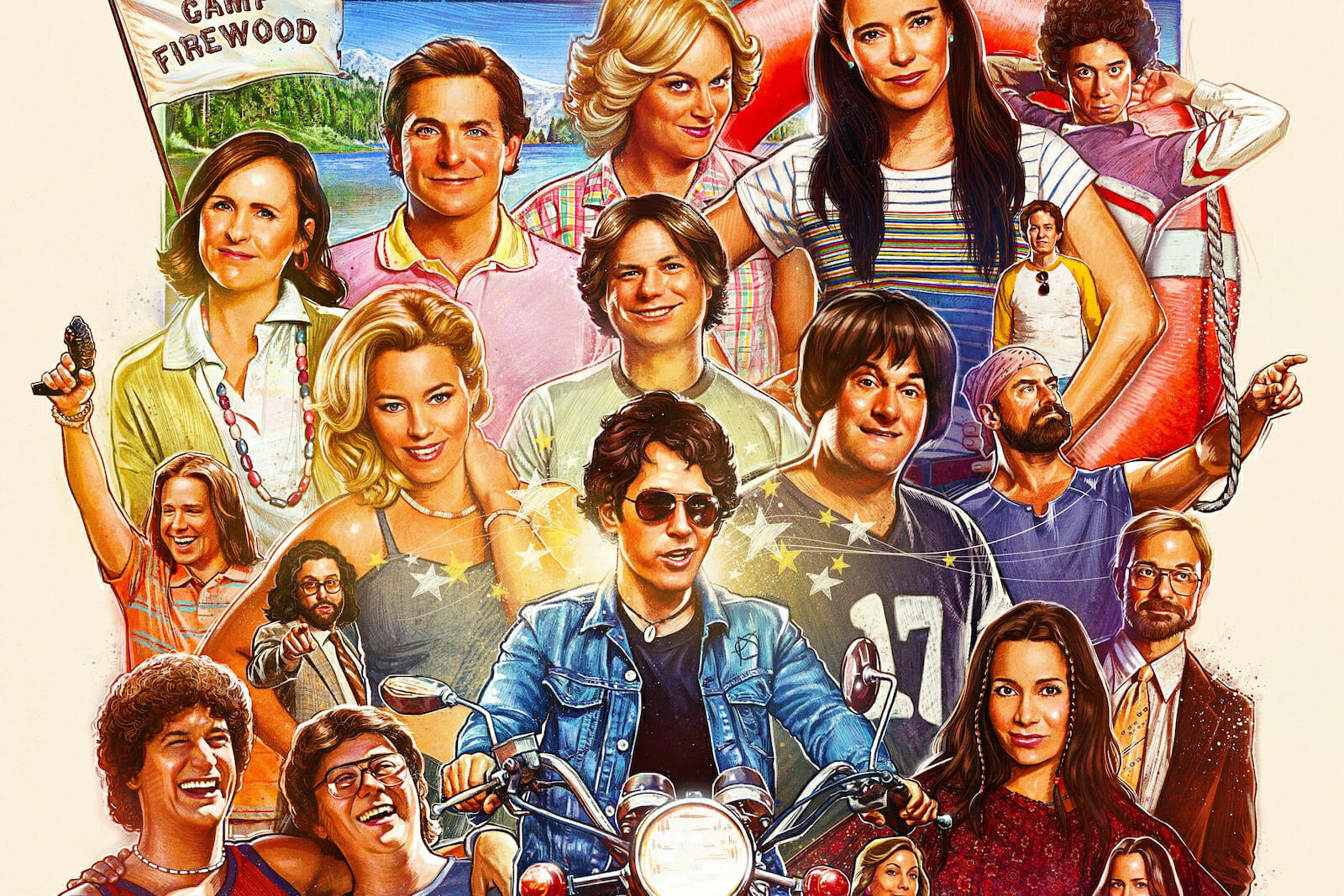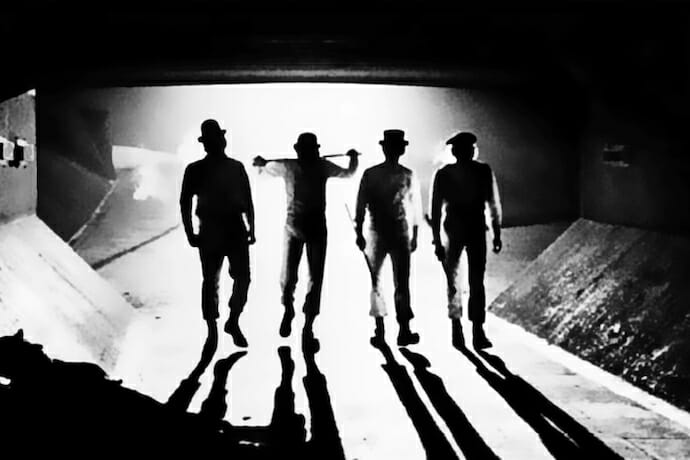
The National Film Registry Risks a Crisis of Public Confidence
Columbus Day, 2017. Culpeper, Virginia. On the one day every year, it’s open to the public, I am standing in the vaults of the Packard Campus for Audio-Visual Conservation, a facility of the Library of Congress that houses their collection of film reels, among other media. I get a feeling like I do when I go to the Main Reading Room of the Library’s main Jefferson Building on Capitol Hill: a sense of power, place, and purpose. This was built before you, and it will undoubtedly outlast you, a representation of humanity, its collective art, and knowledge at its most romanticized and aspirational.
But in this place, this former nuclear fallout bunker converted to protect the movies and art our country and indeed our civilization most cherishes, that sense can be overwhelming because truths begin to dawn on you. Your government is invested in preserving the movies that you love. The movies that matter to you matter to all of us, and their preservation is for the utmost good for the nation and mankind.
A little over a month later, in November, I catch a screening of Superman on the big screen at the Smithsonian and find myself surprisingly moved. A few weeks after that, in December I discover Superman had made it on the National Film Registry. I found it profound knowing for certain that future generations would be able to enjoy the movie much in the same way I did: on the big screen, perhaps in some future version of some future Smithsonian.
But Superman was just the tip of the iceberg, pun intended because Titanic had also made it on that year, feeling like a vindication to the millions who fell in love with it the world over in the late 1990s, be in the theaters or, in my case, countless times on VHS. Titanic had a, well, titanic backlash that had many who truly love the film, like me, going on the defensive for years. But having the backing of the Film Registry felt like codifying what many of us had already known: Titanic was a once-in-a-lifetime spectacle and cultural phenomenon, and more than anything, a truly great film.
Other additions that year included perennial dark horse for best Christmas movie ever made Die Hard; the crowd-pleasing salute to baseball, Field of Dreams; and even The Goonies, the classic 80s adventure film about a group of kids who stumble onto a pirate ship. Field of Dreams was a beloved family favorite growing up, with a deeply spiritual side due to the God-like whisper of “If you build it, he will come.” Die Hard is another personal favorite, one of the finest action movies ever made, gripping in every single one of its 132 minutes. And even if I didn’t grow up on it, I love the idea of a Film Registry that appreciates something like The Goonies.
Today, it feels like if any of those movies weren’t already on, any single one of them would have a difficult time getting on. A year ago, upon nearing the annual deadline for nominations to the National Film Registry, I wrote about what the Registry means to me, as well as the titles I would be nominating that year. If you were curious what that list looks like this year, it is more or less unchanged, because only two of the movies I voted for ended up getting in: The Blues Brothers and The Dark Knight. That feels paltry considering I nominated mostly well-known, mainstream movies.
When I think of the movies I’m nominating this year, I think of moments. I think of seeing Star Trek II: The Wrath of Khan, already a profound meditation on grief, on the big screen recently amidst a global pandemic. I think of showing a friend Robocop during my 30th birthday weekend in January, or how my mom watched Terminator 2: Judgment Day for the first time this summer. I think about watching Tim Burton’s Batman on the big screen just a few weeks ago, as bold and captivating today as it was to audiences back in 1989.
And I think of the movies themselves. I think about how the ending of The Karate Kid makes me cheer, although I haven’t watched it since watching Cobra Kai, so maybe I wouldn’t now that I have more sympathy for Johnny Lawrence (William Zabka). I think about how the victorious re-entry at the ending of Apollo 13 always makes me cry. I think about how Beverly Hills Cop makes me laugh, and how Wet Hot American Summer never ceases to put me in a good mood. One of the few films I am adding to my nomination list this year is 1990’s Teenage Mutant Ninja Turtles. Already a beloved family favorite, it felt like my personal movie of the summer not only because of its easy availability on HBO Max, but because some friends, including my esteemed colleague and occasional collaborator Joel White, and I watched it during Fourth of July weekend.
Yet, when I currently reflect on the Registry, I feel a little like Rutger Hauer at the end of Blade Runner (thankfully already on): “And all those moments will be lost in time…” Thinking about all those movies not yet included has led me to a new line of thinking regarding my beloved Registry: I am concerned by the abundance of universally-beloved movies that have not gotten in yet, as well as frustrated by a lack of clarity about what is and is not eligible or even in the running. One of my favorite movies is Stanley Kubrick’s A Clockwork Orange, and it made it on last year. However, I didn’t vote for it because I didn’t believe it was eligible, on account of primarily being a British, and not American, production.

Moreover, I’m concerned that the Registry, which is supposed to be more or less apolitical, or as much an institution like it can reasonably expect to be, is now in the crosshairs of interest groups who are making big gestures to lobby their individual picks to get in rather than continuing to rely on the institutional process, which is the consensus of the National Film Preservation Board.
The most visible of these efforts has been initiated by the House Hispanic Caucus, who wrote an open letter advocating for the music biopic Selena to get on the NFR, which I covered earlier this year. Later, in March, the Caucus sent a subsequent letter to the Librarian of Congress, Dr. Carla Hayden, advocating for 25 more movies by or about Latino culture to be added to the Registry. If Selena does end up making it on this year, it will only prove that those with the biggest bullhorns are the ones who get to decide what’s selected.
And every year, it feels like there’s a minor coup, be it Clerks in 2019 or Shrek just last year. 2021 is sure to include at least one dark horse or even a genuine surprise pick when this year’s selections are announced in mid-December. But I’m tired of a Film Registry with no Tim Burton movies in it. I’m tired of a Film Registry with no movies that star or at least feature the late, great Robin Williams in it. And what the hell is going on with the lack of any entries in Peter Jackson’s Lord of the Rings trilogy, a true cinematic sensation in every sense of the phrase?
Dare I say that the National Film Preservation Board needs a dose of millennial perspective? Right now, its composition includes legendary filmmakers and industry professionals, but some of the choices they’re making remind me more of the stuffy film professors that I avoided in college.

Some of the most publically visible members of the Board, such as Turner Classic Movies host and film academic Jacqueline Stewart, seem to be under the impression that factors like whether a movie is silent, over a century old, or diverse enough by modern standards matter more than overall public popularity. Look, we all love Leonard Maltin, but I look forward to the day when his spot on the Board is replaced by the likes of someone like Manohla Dargis, film critic for The New York Times.
While movies that win awards can usually bet on getting in at some point, the Registry contains some mighty gaps in genre cinema, particularly in regards to horror. Carrie, The Evil Dead, The Thing, The Texas Chain Saw Massacre, Dawn of the Dead: these are just some of the landmark horror movies that haven’t made it on yet. To remedy this, I propose having organizations like the non-profit American Genre Film Archive (AGFA) be included and to have a say in the matter in order to help with genre diversity in particular. I am greatly impressed with the work AGFA has done preserving and spotlighting mostly obscure, but nonetheless significant genre films.
The law that initiated the Film Registry clearly states that films will be inducted based on their “aesthetic, historical or cultural” value, yet it seems that the Board has been recently neglectful of that last one. While the recent focus on diversity is important, the Film Registry was never broken in that regard, constantly adding films by female and minority filmmakers since its inception. Recent selections have thus felt like an overcorrection, especially in the face of the titles that have yet to get on.
What results, in my estimation, is an enthusiasm gap. The general public wants to get involved but gets frustrated as some of these titles continue to languish outside Registry inclusion. Like many things about this country, the National Film Registry is supposed to be representative of the nation’s citizens, as eclectic and varied as they are. Shouldn’t the selection of movies inducted reflect that? As in all things, the power should remain in the hands of the people.
Last year, I wrote the movies I most wanted to get on. This year, I end with a plea: I implore you to nominate movies to the National Film Registry this year. You can find all information on how to do it here. The deadline to do so is September 15th. As long as the movie is more than 10 years old, anything is fair game, apparently even if the movie itself isn’t necessarily an American production. You would be surprised to learn of some of what hasn’t made it. Nominate the movies that matter to you. Nominate the ones that make you laugh, make you cry, the ones you share with friends, and the ones that get you through bad days. Only with persistent effort can we let our voices be heard and advocate for the movies that matter most to us to get on the National Film Registry.

